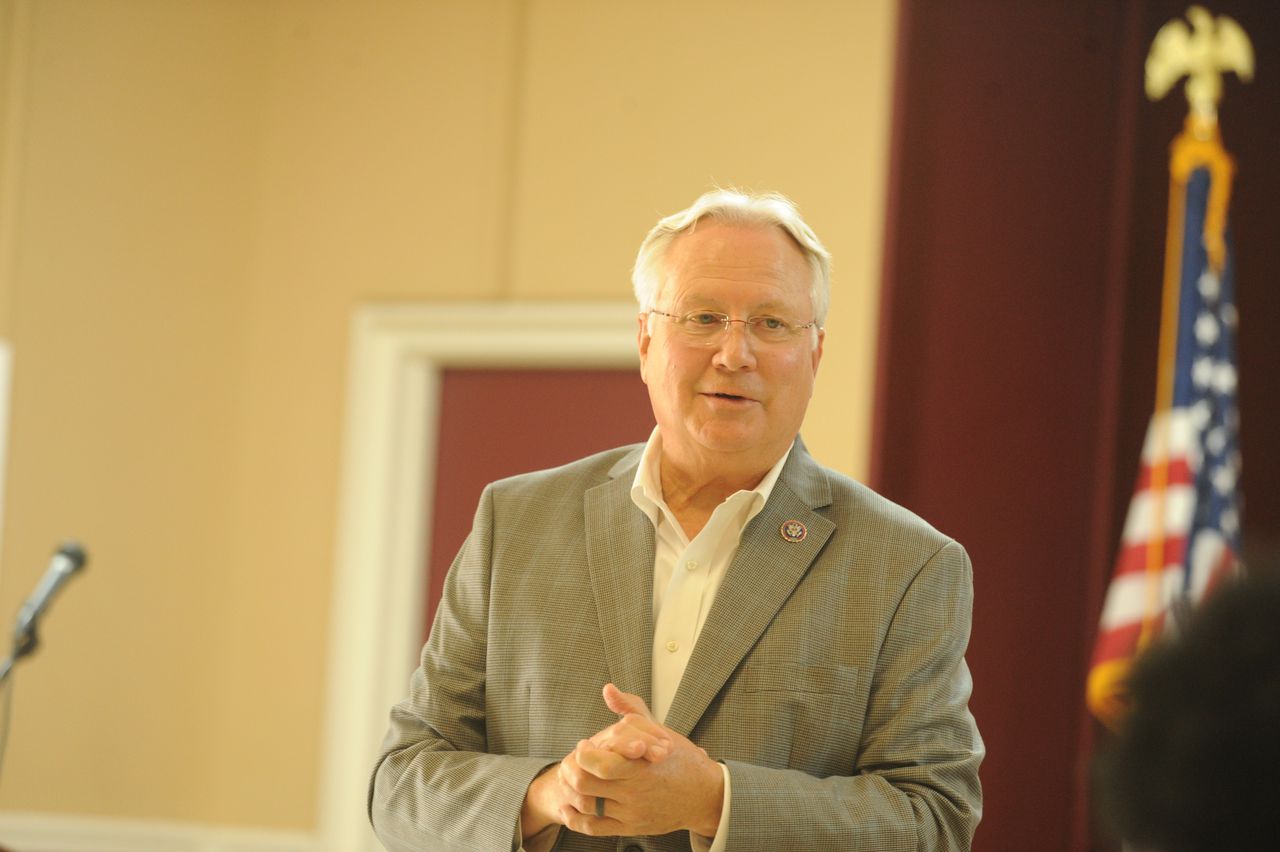Alabama congressional delegation criticize Air Force decision for halting tanker competition
Alabama’s congressional delegation criticized and lamented on Wednesday a decision by the U.S. Air Force that halts a competition for the coveted bridge tanker contract.
The decision was announced Monday by Andrew Hunter, the Air Force’s top weapons buyer, and represents the second time since 2011 that a prized military program will not result in aircraft built in Mobile.
The decision also likely postpones any plans for Airbus to construct a new assembly plant at its sprawling complex at the Mobile’s Brookley Aeroplex.
“As an American taxpayer, I find it offensive that bureaucrats in the U.S. Air Force refuse to hold an open competition for the KC-Y Bridge Tanker program,” U.S. Rep. Jerry Carl, R-Mobile, said in a statement issued earlier in the day. “The decision will result in a massive waste of taxpayer dollars and does not give our Armed Forces the very best tools and equipment to support our nation’s defense interests and keep up safe from growing threats around the globe.”
Airbus, in a statement, applauded Carl’s “outspoken defense” a competition for the Air Force tanker.
“We applaud Representative Carl’s outspoken defense of the values of competition for this critically important national security capability, to protect the interests of both the taxpayers and the men and women in uniform whose lives will depend on these tanker aircraft,” the statement reads.
Hunter confirmed on Monday to Carl’s office that the Air Force will buy only 75 tankers, down from more than 160 that was under consideration last year and which Alabama officials were hoping to compete to secure for construction in Mobile.
Hunter said the 75 planes, built over the next five years, will likely be KC-46s, which are modified Boeing 767s.
Alabama and Georgia federal officials pushed last year for the Air Force to hold a competition to build the 160 or so tankers under a program named KC-Y.
Airbus partnered with Lockheed Martin and proposed building a version of its civilian A330-series of aircraft in Mobile. Lockheed Martin then vowed to fit them out as the newly-minted LMXT tankers in Georgia.
Air Force officials flirted with the prospects of a competition, with Air Force Secretary Frank Kendall saying he was “all for it” and that competition would produce the “best tools” at reducing costs.
But Kendall never committed to a competition, and defense industry publications increasingly said that a competition was “unlikely,” as the Air Force looked to speed up construction of a next-generation refueling system.
Indeed, that appears to be the case and, according to other defense industry reports on Wednesday, Air Force officials indicated they wanted to hold a competition for the new aircraft.
Republican U.S. Senator Katie Britt of Alabama said the Air Force’s decision amounted to a “temporary setback” and that she felt the Next Generation Aerial Refueling System (NGAS) offered opportunities for competition.
Hunter said he expected the Air Force having NGAS flying before the end of the 2030s.
“I am eager to see a Next Generation Air-refueling System competition proceed, knowing that Alabama’s world-class aerospace and defense workforce and capabilities stand ready to support the program, fulfill the mission, and strengthen our national security long into the future,” Britt said in a statement.
The Air Force’s decision comes at a time when Boeing struggles to complete deliveries on the K-46s. According to national media reports, a supplier problem has postponed the deliveries of Boeing’s 767 freighter and the KC-46 tanker this year.
The publication Air Current reported that Boeing had not delivered any of the jets in 2023, due to quality issues surrounding the center fuel tank made by a supplier.
Republican U.S. Senator Tommy Tuberville of Alabama, said he was “disappointed” with the Air Force’s decision and was worried about Boeing’s ability to meet speed-up deliveries.
“Boeing is slow with this,” he said. “Airbus and Lockheed joined together and said we got one and we can get it in a short period of time.”
In 2011, Boeing won the competition to build the KC-46 tankers over Airbus in a fierce competition that left Mobile officials deflated over the lost opportunity of manufacturing aircraft in the coastal Alabama city.
But a few years later, Airbus announced it was building its largest North American plant in Mobile, opening a final assembly line for its popular A320-family of commercial aircraft in 2015. The company has expanded on the 160-acre property south of downtown Mobile and has amassed over 2,200 employees on site.
